Navigating the Complex World of Compliance: Essential Insights for Modern Businesses
For modern businesses, complying with regulations is a challenging journey. Additionally, many overlook measuring this factor about their current applications and technology. According to a poll conducted by Compliance Week and Deloitte & Touche LLP, 40% of companies still need an annual compliance risk assessment. Application compliance slipping through the cracks can result in several other security issues, such as end users’ propensity to use shadow I.T. to navigate the system. Organizations face a compliance challenge as they strive to apply best practices while ensuring that every strategy aims to increase scalability and agility. However, organizations can effectively overcome these challenges with the right support and guidance. Knowing the different compliance details will help you follow the required guidelines and safeguard your business.
Strengthen your data protection strategy to achieve compliance excellence
Don't forget to enter in your text.
In this blog, we will discuss the key compliance services offered by Hyposys to its clients.
CMMC (Cybersecurity Maturity Model Certification)
The United States Department of Defense (DoD) launched the Cybersecurity Maturity Model Certification program to assess its defense contractors’ cybersecurity maturity, preparedness, and capabilities. The framework is essentially an assemblage of procedures, additional frameworks, and inputs from current cybersecurity standards like DFARS, FAR, and NIST.
Enhancing the certainty and security of Federal Contract Information (FCI) and Controlled Unclassified Information (CUI) that their federal contractors possess and use is the main tactical objective of the certification. January 31, 2020, saw the announcement of the CMMC program.

HIPAA (Health Insurance Portability and Accountability Act)
A federal law known as the Health Insurance Portability and Accountability Act of 1996 (HIPAA) mandated the development of national standards to guard against the disclosure of private patient health information without the informed consent or knowledge of the patient. The U.S. Department of Health and Human Services (HHS) released the HIPAA Privacy Rule to implement HIPAA’s requirements. The HIPAA Security Rule protects some of the data covered by the Privacy Rule.
Payment Card Industry Data Security Standard
Protecting and enhancing the security of sensitive cardholder data, including credit card numbers, expiration dates, and security codes, is the main objective of PCI DSS. The security measures outlined in the standard assist companies in reducing the risk of fraud, identity theft, and data breaches. Additionally, PCI DSS compliance guarantees that companies process, store, and transmit credit card data according to industry best practices. Consequently, PCI DSS compliance promotes stakeholder and customer trust.
The Federal Trade Commission (FTC)
The primary mission of the Federal Trade Commission (FTC) is to combat fraudulent, deceptive, and unfair practices within the business realm. Additionally, the FTC is vital in empowering consumers by furnishing them with information to identify, halt, and steer clear of scams and fraudulent activities.

CIS (Center for Internet Security) Controls
The CIS Controls Framework is a framework for promoting and standardizing cybersecurity best practices. The Center for Internet Security, Inc. (CIS) developed and maintained the framework. CIS Controls Framework is the outcome of global cybersecurity experts’ contributions. Based on their experience protecting their organizations against a wide range of cyber threats, they have included their perspective on best practices in the framework.
Organizations can detect and evaluate risks more effectively and quickly adjust to emerging, sophisticated threats using the CIS Controls Framework. Your security operations center will be able to exchange information more effectively and, eventually, choose and apply the best defensive mitigations more quickly. The ability of cyber defenders to exchange their tools is also crucial.
The Consequences of Noncompliance
Fines and Penalties
Regulation noncompliance can result in various penalties, including monetary fines, activity restrictions, more hurdles to approval, and even incarceration. An investigation by a government agency will cost you many hours of labor and possible legal and contractor fees, even if your organization is not fined.

Damage to Reputation
In the 1990s, the popular Kathy Lee Gifford’s clothing line got into trouble for child labor. Investigators discovered comparable problems with numerous other businesses, including Nike. Many of these businesses have since significantly improved how their supply chains are managed, but the initial media frenzy seriously damaged their reputations. Many companies must implement basic supply chain audits and compliance efforts despite years of effort.
Disqualification
Occasionally, governments will take action to force businesses to be out of business, though this is uncommon. A ban on the sale of non-rescue animals in pet stores was implemented in California, which could lead to the closure of numerous puppy mills. The list of businesses subject to stringent regulations is extensive and still growing: manufacturers of cigarettes, lead found in paint and gasoline, asbestos products, SO2 emissions, and different chemicals like DDT.
Although you might believe your company is exempt from such dramatic events, public opinion can change swiftly. So it is advised to always be on the safer side.

Conclusion
Compliance is committed to ethical standards and proactive and responsible business practices. The seriousness of noncompliance is highlighted by the consequences, which include financial impact, legal scrutiny, and reputational damage. In addition to being required by law, the proactive adoption of strong compliance measures is strategically essential for resilience, trust, and sustainable growth. With experience in CIS Controls, FTC, NIST frameworks, HIPAA, PCI DSS, CMMC, and NIST frameworks, Hyopsys is a valuable partner for managing regulatory environments and upcoming obstacles.
Looking for essential tips and strategies to ensure compliance?
Don't forget to enter in your text.
Contact us to learn more about the specialized compliance services that Hyopsys offers and guarantee a safe and legal future in this ever-changing business environment.



